15-May-2025
The Best Workshop Cranes for Small Businesses & SMEs
For small and medium-sized enterprises (SMEs) and general workshops, efficiency, safety, and cost-effectiveness are top priorities. Whether you’re handling machinery parts, raw materials, or finished products, a workshop crane can boost productivity, reduce manual labor, and minimize workplace injuries.
But with so many options—jib cranes, gantry cranes, electric hoists, and more—how do you choose the right one for your needs?
This guide covers:
✅ Types of workshop cranes for SMEs
✅ Key benefits of using cranes in small workshops
✅ How to select the best crane for your budget
✅ Top safety and maintenance tips
Why Do SMEs Need Workshop Cranes?
Manual lifting is slow, risky, and inefficient. A well-chosen crane helps:
✔ Increase productivity – Move heavy loads in seconds.
✔ Reduce worker strain – Prevent back injuries and fatigue.
✔ Maximize space – Compact designs fit tight workshops.
✔ Lower long-term costs – Fewer workplace accidents & faster operations.
Types of Workshop Cranes for Small Businesses
For small businesses and workshops, choosing the right crane depends on your specific lifting needs, available space, and budget. Here’s an expanded guide to help you select the perfect solution:
1. Jib Cranes
Best for: Small workshops with limited space that need flexible lifting
Sub-types:
- Wall-mounted jib cranes
- Capacity: 0.25-5 tons
- Reach: 2-8 meters
- Rotation: 180° or 270°
- Ideal for: Workstations along walls, loading bays
- Freestanding jib cranes
- Capacity: 0.5-10 tons
- Reach: 3-10 meters
- Rotation: 360°
- Ideal for: Central work areas, multiple workstations
- Mast-type jib cranes
- Capacity: 0.5-5 tons
- Requires floor mounting but no wall support
- Ideal for: Workshops where wall mounting isn’t possible
Key Advantages:
✓ Minimal floor space required
✓ Fast installation (often just 1-2 days)
✓ Lowest cost option (starting around $2,000)
✓ Easy to relocate if needed
Limitations:
- Limited to single workstation service
- Lower capacity than gantry or bridge cranes
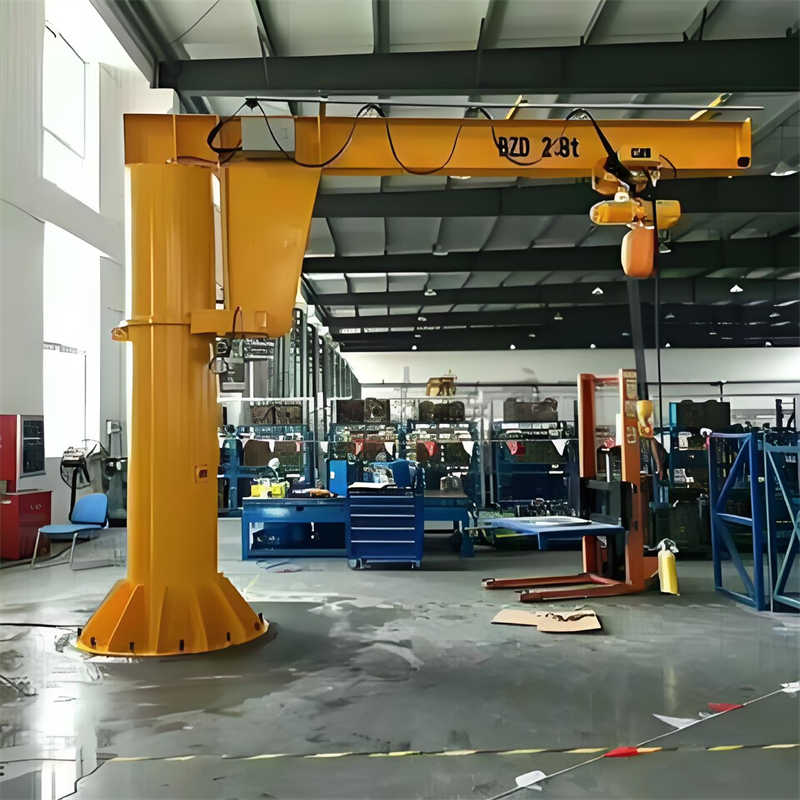
2. Gantry Cranes
Best for: Versatile lifting in workshops with open floor plans
Sub-types:
- Adjustable height gantry cranes
- Capacity: 1-20 tons
- Span: 2-10 meters
- Height adjustable via telescoping legs
- Ideal for: Workshops with varying load heights
- Portable gantry cranes
- Capacity: 0.5-5 tons
- Wheel-mounted for easy movement
- Ideal for: Multiple workstations or outdoor use
- Semi-gantry cranes
- One leg runs on floor, other on elevated runway
- Ideal for: Work areas with partial obstructions
Key Advantages:
✓ No permanent installation required
✓ Can be moved to where needed
✓ Handles heavier loads than jib cranes
✓ Outdoor-capable versions available
Limitations:
- Requires more floor space
- Less precise than fixed cranes
- Typically costs $3,000-$15,000
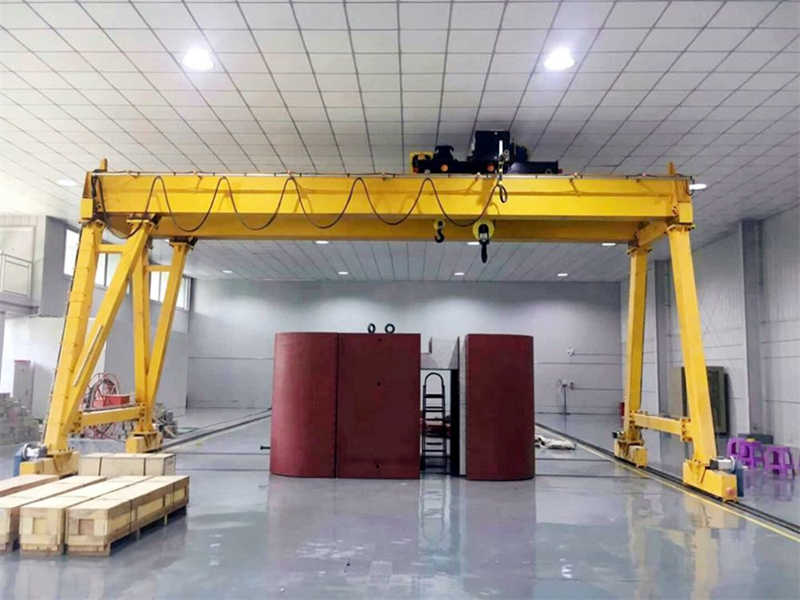
3. Bridge Cranes
Best for: Medium-sized workshops with frequent lifting needs
Sub-types:
- Single girder bridge cranes
- Capacity: 1-20 tons
- Span: 5-30 meters
- Most cost-effective bridge crane option
- Double girder bridge cranes
- Capacity: 5-50+ tons
- Span: 10-40 meters
- Allows for walkways and auxiliary hoists
- Modular bridge cranes
- Pre-engineered kits for easier installation
- Ideal for: Quick deployment and future expansion
Key Advantages:
✓ Full workshop coverage
✓ Highest lifting capacities
✓ Smoothest operation for frequent use
✓ Can integrate with automation systems
Limitations:
- Requires permanent runway installation
- Highest initial cost ($15,000-$100,000+)
- May need building reinforcement
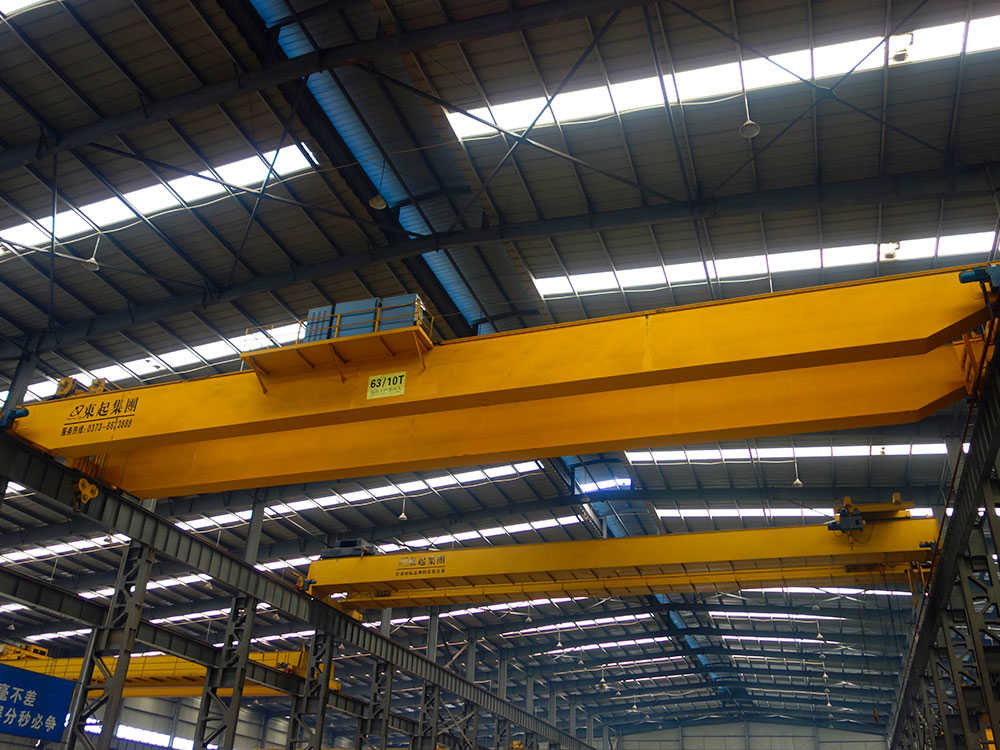
4. Electric Chain Hoists
Best for: Light-duty, repetitive lifting tasks
Configuration Options:
- Stationary mounted
- Fixed to beams or trolleys
- Ideal for: Dedicated workstations
- Trolley-mounted
- Moves along a beam
- Provides some horizontal movement
- Push-around
- Mounted on portable stands
- For temporary lifting needs
Key Advantages:
✓ Lowest cost option (starting under $1,000)
✓ Minimal installation required
✓ Precise load control
✓ Energy efficient operation
Limitations:
- Limited capacity (typically ≤5 tons)
- Manual horizontal movement (unless motorized)
- Not suitable for heavy continuous use
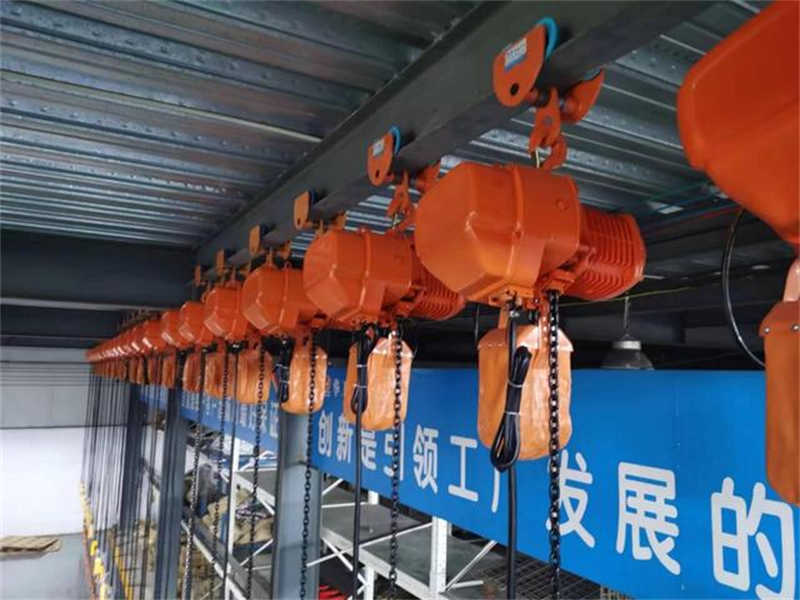
5. Specialized Workshop Cranes
For unique applications:
- Workstation bridge cranes
- Small bridge systems for individual cells
- Capacity: 0.25-2 tons
- Ideal for: Assembly stations
- Monorail cranes
- Fixed path movement
- Good for: Repetitive process flows
- Low-headroom cranes
- Compact designs for spaces with height restrictions
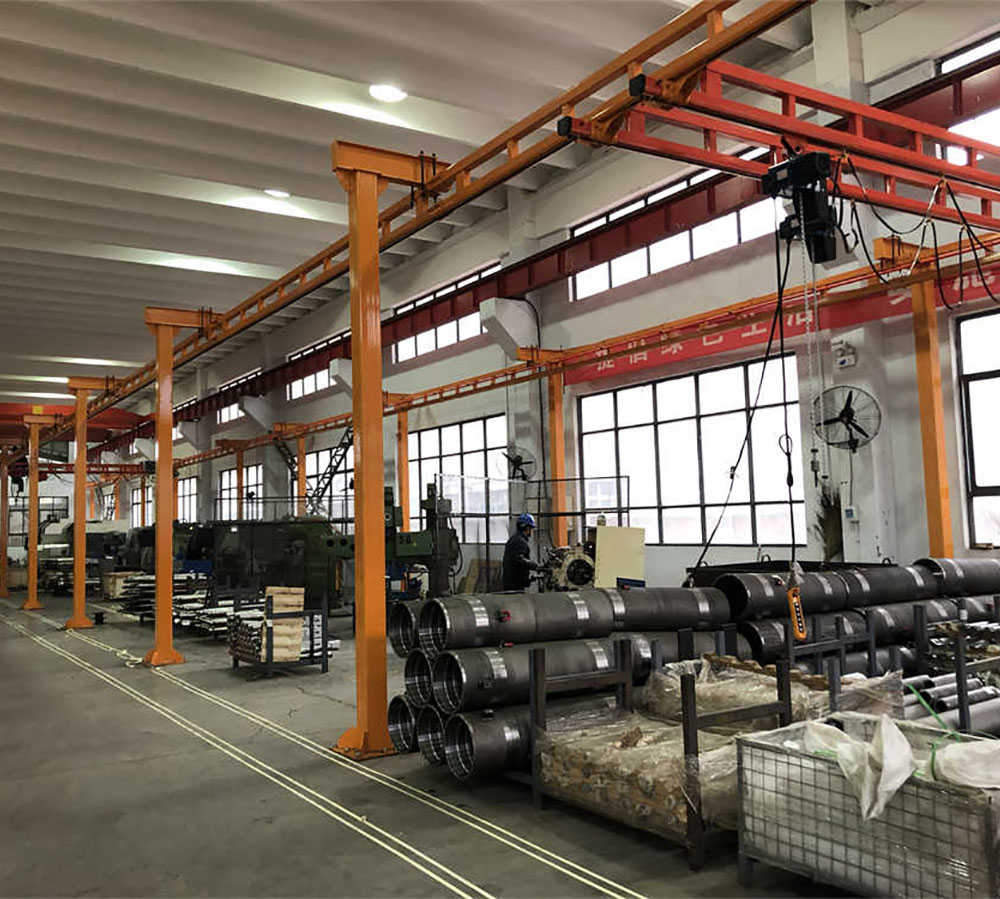
Selection Tip: Consider future needs – many modular systems allow for easy capacity upgrades as your business grows.
Each crane type offers distinct advantages depending on your workshop layout, material handling requirements, and growth plans. The right choice balances your current needs with future flexibility while staying within budget.
How to Choose the Right Workshop Crane?
Ask these 5 key questions:
- What’s your max load weight? → Choose a crane with 20% extra capacity for safety.
- How much space do you have? → Jib cranes for tight spaces, gantry cranes for open areas.
- How often will you use it? → Frequent use? Go for electric hoists over manual ones.
- Indoor or outdoor? → Weatherproof cranes (galvanized steel) for outdoor use.
- What’s your budget? → Jib cranes = cheapest, bridge cranes = long-term investment.
Safety & Maintenance Tips
✔ Inspect hooks, chains, and brakes weekly.
✔ Train workers on proper load balancing.
✔ Never exceed the crane’s weight limit.
✔ Lubricate moving parts regularly.
Final Recommendation: Best Crane for SMEs?
- Best Budget Pick: Jib Crane (if space is limited).
- Best for Heavy Loads: Gantry Crane (portable & strong).
- Best for Automation: Bridge Crane (future-proof investment).
Need Help Selecting a Crane?
Every workshop is different—contact us for a free consultation to find the perfect crane for your business!

